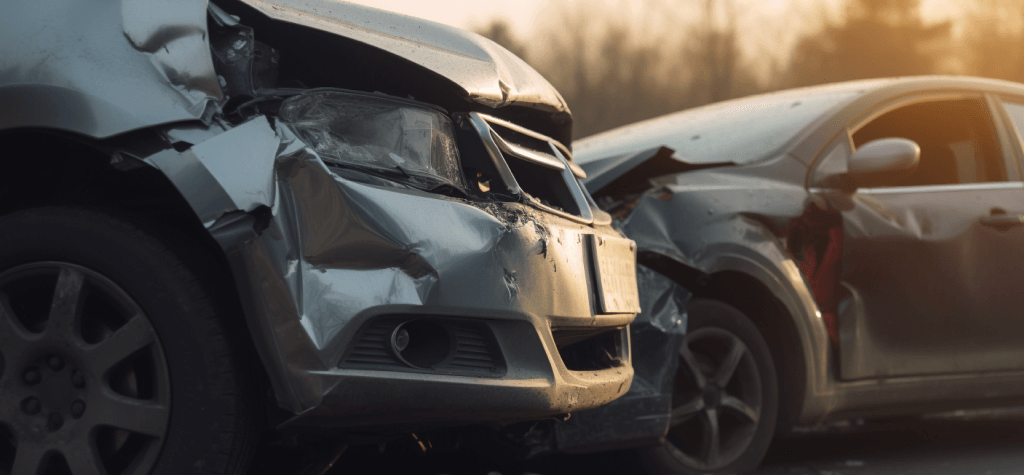New Bill Outlaws Cell Phone Use While Driving
Colorado joins 27 other states with hand-held phone bans. The Colorado State Legislature recently passed a cell phone driving law that will make it illegal for drivers to hold cell ...
Keep Reading
Property damage insurance pays for damage to someone else’s property following a car accident. In most cases, this coverage covers the cost to repair a damaged vehicle or replace a totaled vehicle. It also covers personal belongings destroyed in a car accident. Colorado law requires every automobile insurance policy to carry a minimum limit of $15,000.00 in property damage coverage.
The aftermath of a car accident in Colorado is always the same, even if your claim only has to do with property damage. Following a car accident in Colorado, you should:
Aside from collecting personal information, do not say anything else at the scene. People will remember if you admitted fault or apologized. You may not have all the information relative to liability so making a statement that runs counter to your position will only harm your case.
Property damage liability insurance covers damage to someone else’s property after a car accident. It also covers damage caused by someone else driving your car with permission. More specifically, property damage liability pays for damage to:
Property damage liability may also cover legal expenses if you are sued.
While Colorado sets the minimum property damage coverage at $15,000.00, it is important to consider what is required versus what is necessary. When considering the amount of property damage to add to an insurance policy, you should consider the following questions:
If you answered “yes” to any of these questions, you may want to consider raising your property damage insurance coverage.
Consider the possible effects of a car accident in Colorado. In the event of a serious accident, it is not uncommon to damage multiple vehicles. It is not difficult to conceive a situation where the first impact causes the vehicle to be pushed into another vehicle, which in turn causes the second vehicle to be pushed into a third vehicle. The driver who caused the initial impact will likely be responsible for the damage to all three vehicles. It is foreseeable the property damage would result in the following:
In this example, if you only carried $15,000.00 in property damage insurance coverage, your carrier would only be responsible for paying $15,000.00. You would ultimately be responsible for paying the excess property damage amount, or $15,000.00, out of pocket.
A total loss means a vehicle was damaged so badly that it would cost more for repairs than the vehicle is worth. This happens when a repair estimate exceeds the value of the vehicle. When an insurance company determines a vehicle is totaled, there is no repair process. Rather, the vehicle owner will receive compensation based on the vehicle’s value.
When a vehicle is considered a total loss, the at-fault driver’s insurance company will pay the current market value of the vehicle subject to the available property damage coverage. Importantly, current market value is not the same as the sticker price of the vehicle. It does not matter if you only drove the vehicle 3 miles. The current market value is not going to equal the amount you paid for the vehicle. Moreover, the current market value does not consider how much is left on the loan or lease.
Learn More: Totaled Vehicle in Colorado Car Accident
Diminished value refers to the difference between your car’s average market value before and after an accident. In the event an insurance company opts to pay the repairs for a vehicle, the unfortunate reality is that it will be worth less than it was prior to the accident. Fortunately, you can bring a claim for diminished value against the at-fault driver’s insurance company, even if your insurance company paid for the repairs.
There are three main types of diminished value claims:
If you find yourself the victim of a hit-and-run accident in Colorado, the first thing you must do is contact the police and report the accident. Leaving the scene of an accident is illegal in Colorado. Whenever there is a criminal action like this, police will typically report to the scene of the accident, even if there were no injuries. If the police do not report to the scene, be sure to document everything you can and file a counter report. You will likely have to do this online or visit your local police department.
The police report is instrumental in a property damage claim. Your insurance carrier will want to confirm the circumstances surrounding the accident so try your best to have a local police department investigate the accident. When discussing the case with your first party insurance carrier, provide as much information as possible.
When considering a diminished value claim, it is important to speak with a car accident property damage attorney who actually assists clients with this portion of the claim. Most law firms do not touch property damage and stay away from diminished value because they do not earn a fee. The personal injury lawyers at Bowman Law do assist with property damage and diminished value claims.
If you have questions regarding your property damage or a car accident case, you should speak with a qualified car accident attorney in Colorado. Contact Bowman Law for your free consultation.
Our law firm is located in Denver and serves the Front Range including Colorado Springs, Boulder, Fort Collins, Westminster, Lakewood, and Aurora.